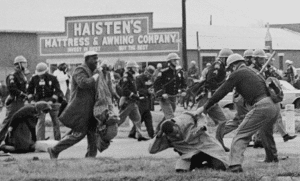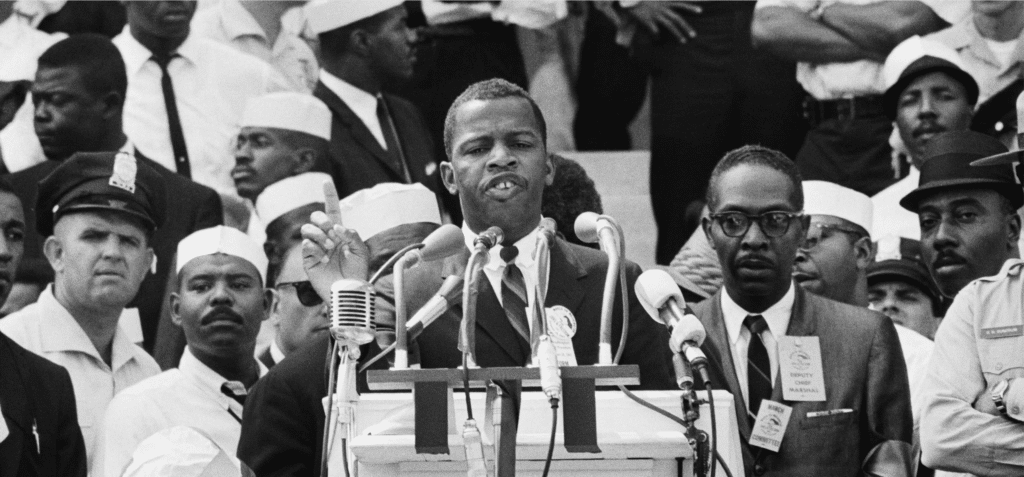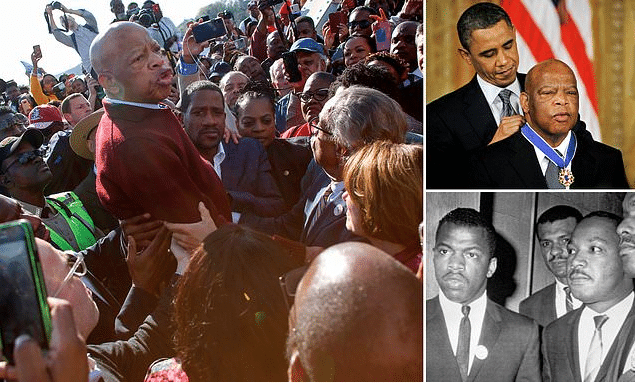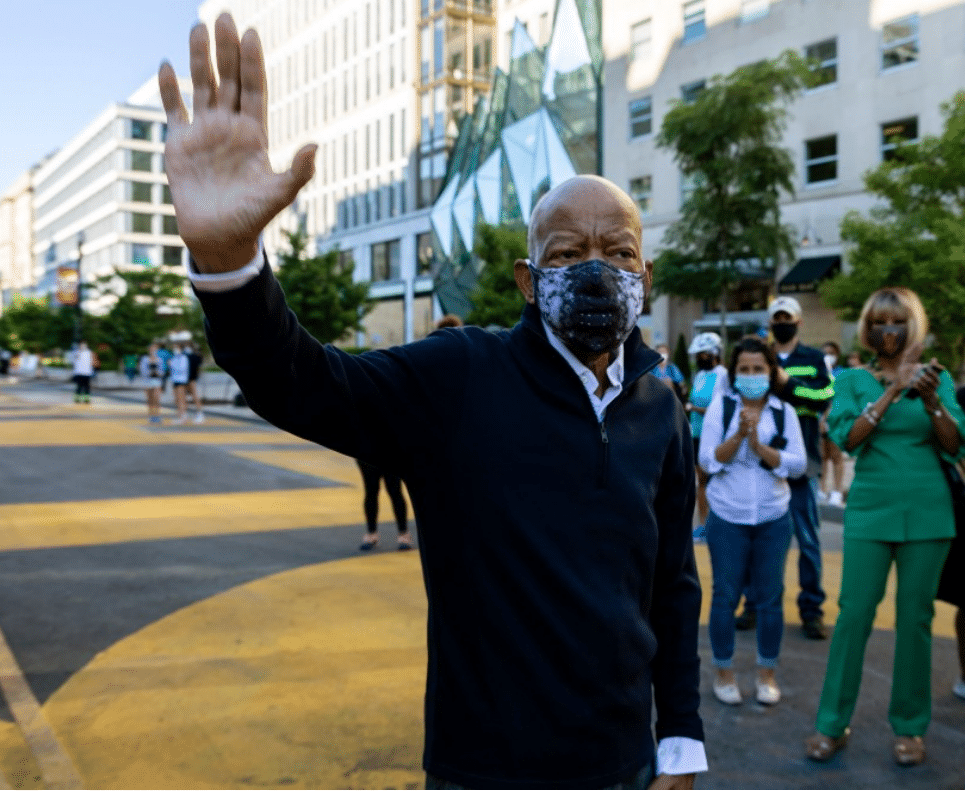Representative John Lewis, a son of sharecroppers and an apostle of nonviolence who was bloodied at Selma and across the Jim Crow South in the historic struggle for racial equality, and who then carried a mantle of moral authority into Congress, died on Friday. … On the front lines of the bloody campaign to end Jim Crow laws, with blows to his body and a fractured skull to prove it, Mr. Lewis was a valiant stalwart of the civil rights movement and the last surviving speaker at the historic March on Washington for Jobs and Freedom in 1963. …
More than a half-century later, after the killing in May of George Floyd, a Black man in police custody in Minneapolis, Mr. Lewis welcomed the resulting global demonstrations against police killings of Black people and, more broadly, against systemic racism in many corners of society.
(The New York Times, July 18, 2020)
No doubt all kinds of people will be rushing to tweet trite tributes hailing his greatness. But, truth be told, I think it’s best to leave it to eminent historians like Jon Meacham to do justice to pioneering Blacks like Lewis.
Therefore, I highly recommend His Truth Is Marching on: John Lewis and the Power of Hope. It’s scheduled for release in October, but it would not surprise me if his death “inspires” the publisher to do so sooner.
 I would also urge those tweeting tributes to remind their followers that the defining cause of Lewis’s life was championing the unfettered right to vote. This is why I join Nikole Hannah-Jones, the Pulitzer Prize-winning reporter for The New York Times on Race Matters, in issuing this clarion call:
I would also urge those tweeting tributes to remind their followers that the defining cause of Lewis’s life was championing the unfettered right to vote. This is why I join Nikole Hannah-Jones, the Pulitzer Prize-winning reporter for The New York Times on Race Matters, in issuing this clarion call:
Call your representatives in Congress and tell them to restore the protections of the Voting Rights Act that John Lewis nearly died securing. Any official expressing sympathies for his passing while refusing to support this bill is insincere.
— Ida Bae Wells (@nhannahjones) July 18, 2020
Still, I’d be remiss not to note how often I’ve mentioned him in my commentaries over the years. As it happens, though, it was invariably in the context of Democratic presidential candidates making quadrennial pilgrimages to his congressional district to curry favor and seek his endorsement.
Here, for example, is how I wrote about Barack Obama and Hillary Clinton doing so in “Obama Extends Primary Sweep(Stakes) Up and Down the Potomac,” February 13, 2008:
_________
The really bad omen for the Clintons … is the number of their erstwhile, die-hard supporters who are now jumping ship to catch the Obama wave. No one personifies this political opportunism quite like civil rights firebrand Rev. Al Sharpton. …
The Democratic Party can prevent this internecine battle, however, by apportioning superdelegates based on the percentage of pledged delegates each candidate wins. No one personifies this political principle quite like civil rights pioneer Rep. John Lewis (D-GA). In fact, he declared just last night that – even though he endorsed Hillary’s candidacy (and I forgive him for that) – he will cast his superdelegate vote for Obama at the convention because Obama is the candidate his constituents voted for in the Georgia primary.
________
So you see, even when Lewis lacked good judgment, he displayed good sense.
His office announced last December that he had been diagnosed with stage 4 pancreatic cancer. He was 80.
Farewell, John.
Related commentaries:
Race Matters…
Obama extends primary…


